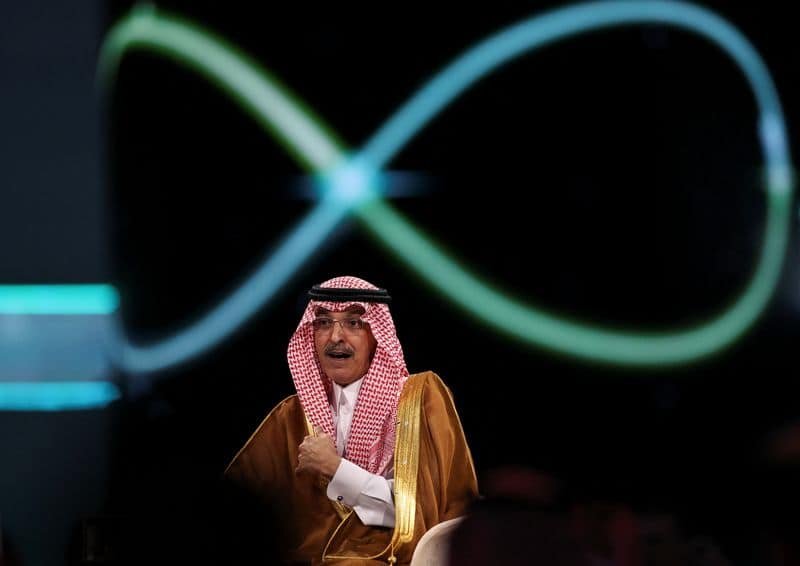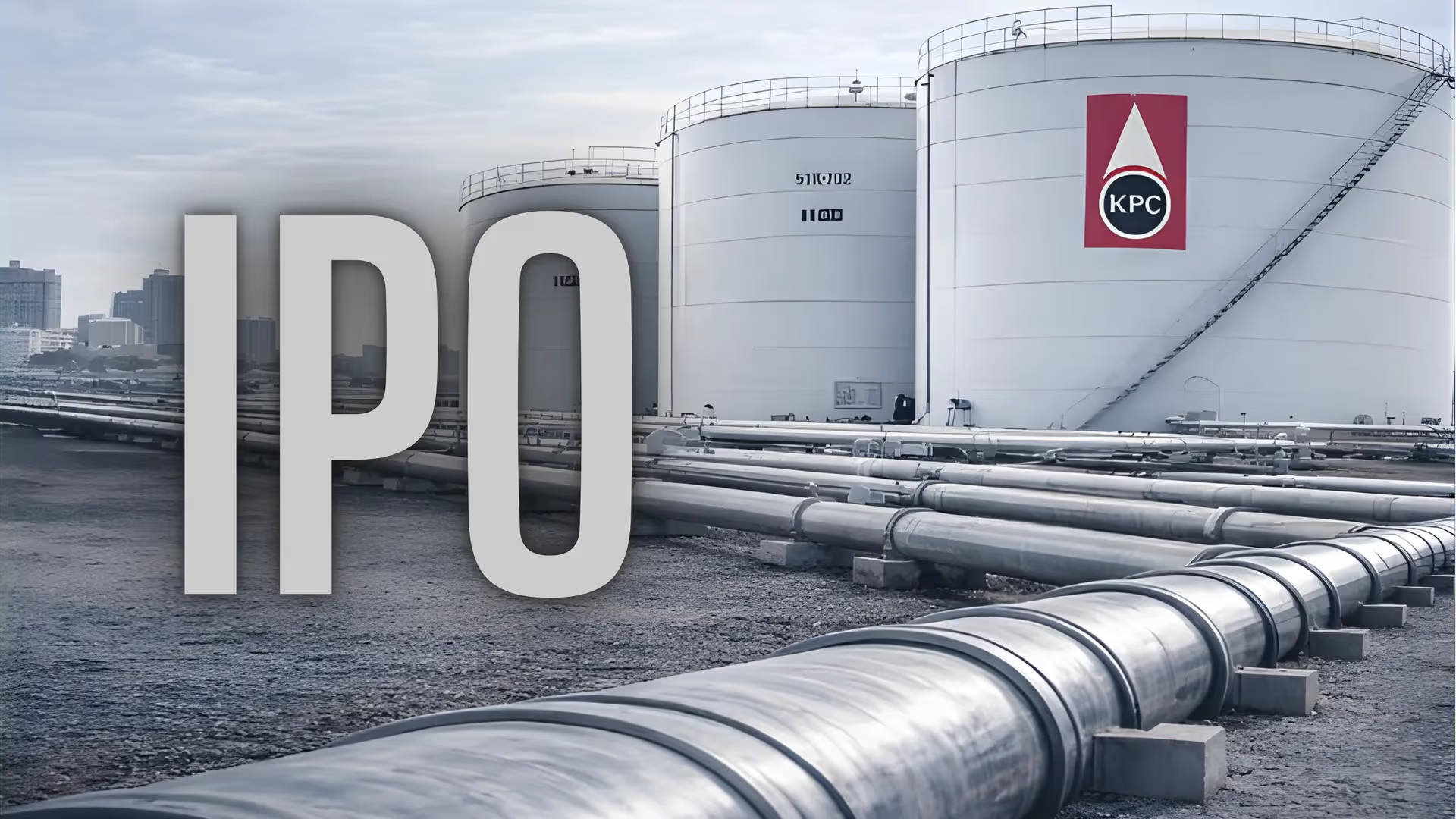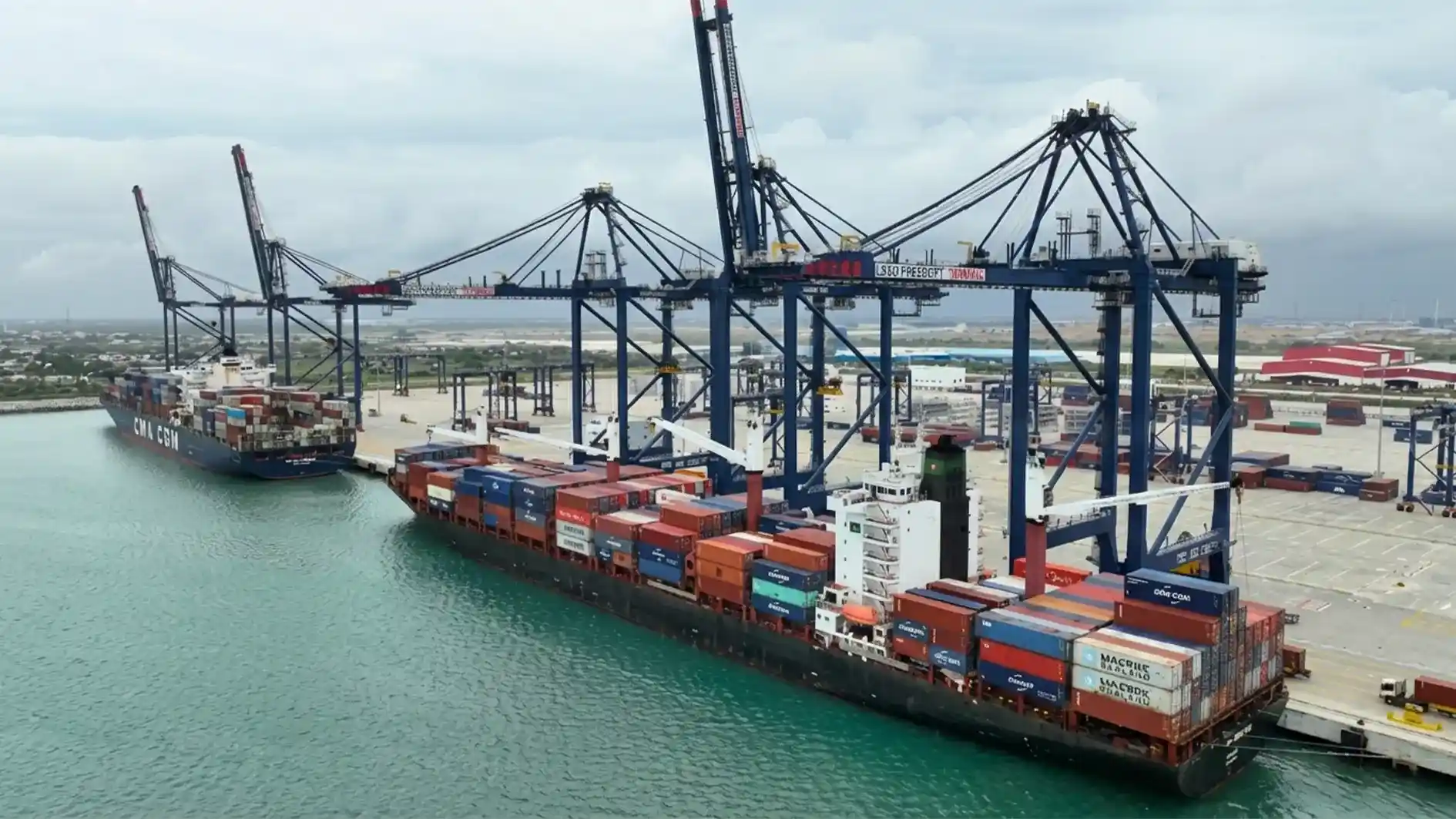Saudi Arabia has approved its state budget for 2025, projecting a fiscal deficit of 101 billion riyals ($26.88 billion), equivalent to approximately 2.3% of its gross domestic product (GDP). Despite the deficit, the kingdom remains committed to massive spending on its Vision 2030 gigaprojects aimed at diversifying its economy away from oil reliance.
Key Highlights of the 2025 Budget:
- Projected Deficit: 101 billion riyals (2.3% of GDP)
- Total Expenditure: 1.285 trillion riyals (approximately 30% of GDP over three years)
- Total Revenue: 1.184 trillion riyals
- Public Debt: Expected to rise to 1.3 trillion riyals (just below 30% of GDP)
Sustaining Vision 2030 Amid Economic Pressures
Finance Minister Mohammed Al Jadaan emphasized that Saudi Arabia’s strategic spending on transformative projects under Vision 2030 will continue. Despite challenges posed by declining oil prices and voluntary production cuts by OPEC+, the government remains steadfast in its commitment to long-term growth and economic diversification.
Vision 2030, spearheaded by Crown Prince Mohammed bin Salman, envisions a future where the Saudi economy thrives on sectors such as tourism, technology, renewable energy, and advanced manufacturing. The ambitious reforms have attracted global attention and partnerships, but they come with high costs, necessitating careful fiscal management.
“NEOM is a 50-plus-year plan,” Al Jadaan said, referring to the futuristic $500 billion desert city project. “If anyone is thinking NEOM in its grand size is going to be built and operated and making money in five years, that’s foolish. We are wise people.” He noted that while some components of NEOM would generate returns in the short to medium term, the overall project represents a multi-decade commitment.
Adjustments to Gigaprojects
Recent reports indicate that the government has scaled back certain Vision 2030 projects to focus on elements essential for hosting major global events over the next decade. A sweeping spending review, welcomed by the International Monetary Fund (IMF) and credit ratings agencies such as Moody’s, is currently underway to optimize costs without undermining growth ambitions.
One notable adjustment involves prioritizing infrastructure that aligns with Saudi Arabia’s goal of becoming a global hub for sports and entertainment. For example, Riyadh recently secured hosting rights for the 2034 FIFA World Cup, further solidifying its international profile.
Financing Strategies and Oil Dependency
To cover the 2025 deficit and manage public debt, Saudi Arabia plans to leverage both international and domestic financing mechanisms. Al Jadaan reiterated that there are no immediate plans to transfer additional ownership stakes in Saudi Aramco to the Public Investment Fund (PIF), the sovereign wealth fund backing many Vision 2030 projects.
The PIF aims to grow its assets under management to 4 trillion riyals by the end of 2025, up from 3.47 trillion riyals as of October. However, fluctuations in global oil prices and production cuts could impact the fund’s progress and the government’s ability to sustain dividends from Aramco, a vital revenue stream.
Aramco’s dividends remained steady at $31.1 billion in Q3 2024, despite a decline in profits. Analysts caution that the continuation of such payouts at current levels may become challenging if oil revenues decline further. Justin Alexander, director at Khalij Economics, estimates that 2025 oil revenue could drop by 10% compared to 2024.
“If the budget assumes the current OPEC+ taper, equivalent to a 7% increase in crude on average, then this decline in revenue implies either substantially lower prices or a reduction in Aramco dividends – possibly a combination of the two,” Alexander noted.
Broader Economic Trends and 2024 Performance
The Saudi finance ministry revised its 2024 budget estimates, projecting a slightly narrower fiscal deficit of 115 billion riyals (2.8% of GDP) compared to an earlier forecast of 118 billion riyals. While still wider than initially budgeted, the revised figures reflect improved fiscal management amid volatile oil markets.
The Saudi economy, which contracted in 2023 due to oil production cuts and global economic pressures, is set to rebound with 0.8% GDP growth in 2024. Growth is expected to accelerate to 4.6% in 2025, driven by non-oil activities. Key sectors like tourism, manufacturing, and renewable energy are forecast to play a central role in this recovery.
International Implications and OPEC+ Dynamics
Saudi Arabia’s fiscal plans come as OPEC+ nations deliberate on whether to extend voluntary production cuts into 2025. A delay in planned output increases could provide some price stability but might also constrain revenue growth for the kingdom.
Additionally, Saudi Arabia’s commitment to Vision 2030 and gigaproject spending has broader implications for global markets. The kingdom’s investments in renewable energy, such as the $5 billion Green Hydrogen Project in NEOM, signal a shift toward sustainable development that aligns with global energy transition goals.
Challenges and Opportunities Ahead
While the Saudi government faces challenges such as balancing fiscal discipline with growth ambitions, its strategic approach to spending and diversification offers significant opportunities. The nation’s growing focus on technology, infrastructure, and tourism could position it as a leader in the Middle East’s economic transformation.
Moreover, initiatives like the Saudi Green Initiative and the Middle East Green Initiative underscore Riyadh’s commitment to combating climate change and enhancing its global influence. As these programs progress, Saudi Arabia’s role in shaping the region’s future economy will likely grow.
Conclusion
Saudi Arabia’s 2025 budget reflects a delicate balance between ambitious growth plans and prudent fiscal management. While the projected deficit underscores the challenges of economic transformation, it also highlights the kingdom’s determination to achieve Vision 2030’s long-term goals. As Crown Prince Mohammed bin Salman remarked, the reforms are already producing “the positive indicators of the Saudi economy.”
The road ahead will require sustained effort, innovative financing strategies, and adaptability to global economic trends. However, Saudi Arabia’s vision for the future remains bold and inspiring, setting the stage for transformative change in the years to come.
Ready to take your career to the next level? Join our dynamic courses: ACCA, HESI A2, ATI TEAS 7 and HESI EXIT !🌟 Dive into a world of opportunities and empower yourself for success. Explore more at Serrari Ed and start your exciting journey today! ✨
photo source: Google
By: Montel Kamau
Serrari Financial Analyst
27th November, 2024
Article, Financial and News Disclaimer
The Value of a Financial Advisor
While this article offers valuable insights, it is essential to recognize that personal finance can be highly complex and unique to each individual. A financial advisor provides professional expertise and personalized guidance to help you make well-informed decisions tailored to your specific circumstances and goals.
Beyond offering knowledge, a financial advisor serves as a trusted partner to help you stay disciplined, avoid common pitfalls, and remain focused on your long-term objectives. Their perspective and experience can complement your own efforts, enhancing your financial well-being and ensuring a more confident approach to managing your finances.
Disclaimer: This article is for informational purposes only and does not constitute financial advice. Readers are encouraged to consult a licensed financial advisor to obtain guidance specific to their financial situation.
Article and News Disclaimer
The information provided on www.serrarigroup.com is for general informational purposes only. While we strive to keep the information up to date and accurate, we make no representations or warranties of any kind, express or implied, about the completeness, accuracy, reliability, suitability, or availability with respect to the website or the information, products, services, or related graphics contained on the website for any purpose. Any reliance you place on such information is therefore strictly at your own risk.
www.serrarigroup.com is not responsible for any errors or omissions, or for the results obtained from the use of this information. All information on the website is provided on an as-is basis, with no guarantee of completeness, accuracy, timeliness, or of the results obtained from the use of this information, and without warranty of any kind, express or implied, including but not limited to warranties of performance, merchantability, and fitness for a particular purpose.
In no event will www.serrarigroup.com be liable to you or anyone else for any decision made or action taken in reliance on the information provided on the website or for any consequential, special, or similar damages, even if advised of the possibility of such damages.
The articles, news, and information presented on www.serrarigroup.com reflect the opinions of the respective authors and contributors and do not necessarily represent the views of the website or its management. Any views or opinions expressed are solely those of the individual authors and do not represent the website's views or opinions as a whole.
The content on www.serrarigroup.com may include links to external websites, which are provided for convenience and informational purposes only. We have no control over the nature, content, and availability of those sites. The inclusion of any links does not necessarily imply a recommendation or endorsement of the views expressed within them.
Every effort is made to keep the website up and running smoothly. However, www.serrarigroup.com takes no responsibility for, and will not be liable for, the website being temporarily unavailable due to technical issues beyond our control.
Please note that laws, regulations, and information can change rapidly, and we advise you to conduct further research and seek professional advice when necessary.
By using www.serrarigroup.com, you agree to this disclaimer and its terms. If you do not agree with this disclaimer, please do not use the website.
www.serrarigroup.com, reserves the right to update, modify, or remove any part of this disclaimer without prior notice. It is your responsibility to review this disclaimer periodically for changes.
Serrari Group 2025
















